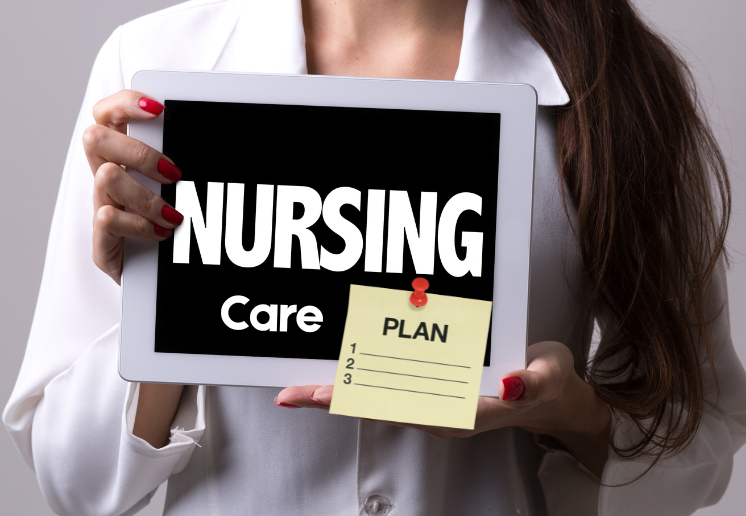Table of Contents
Are you thinking about making the leap from Ontario to British Columbia or other provinces in Canada and vice versa? It might open new career opportunities and provide a fresh start in a new environment.
But before moving to the West Coast, you must know the process of transferring your RN (registered nurse) license.
You don’t need to worry because the Future Building Nursing Prep Center has you covered. As a leading nursing educator, we stay up-to-date with all the norms related to nursing and help the community with our knowledge.
This blog will walk you through the entire process, from understanding the requirements to submitting your application.
Why Transfer Your License to BC?
British Columbia offers a lot of opportunities for Registered Nurses (RNs). Here are some of the reasons why you might consider transferring your license from Ontario to BC:
High Demand for Nurses
British Columbia (BC) is currently experiencing a high demand for registered nurses (RNs). With an aging population and an increasing need for healthcare services, the province seeks skilled professionals to fill critical roles in various healthcare settings.
According to a report by Vancouver Public Library, there are going to be 20,000+ job openings in the near future for registered nurses in BC.
Hospitals, long-term care facilities, and community health centers urgently need qualified nurses. This demand not only ensures job security but also offers numerous opportunities for career advancement. Nurses in BC can expect to find positions that match their skills and interests, making it an attractive destination for those looking to grow professionally.
Competitive Salaries and Benefits
One of the most compelling reasons to transfer your RN license to BC is the competitive salaries and benefits offered to nurses. BC is known for providing attractive compensation packages that often include comprehensive health benefits, pension plans, and opportunities for professional development.
BC’s wages can be significantly higher than those in other provinces, reflecting the province’s commitment to attracting and retaining top talent in the healthcare sector.
In 2023, the median salary of a registered nurse working in BC was $43 CAD per hour. It is one of the highest wages per hour among the Canadian provinces. Additionally, many employers in British Columbia offer incentives such as signing bonuses, relocation assistance, and continuing education allowances, making it financially rewarding to make the move.
Beautiful Location and Lifestyle
BC is renowned for its stunning natural beauty and high quality of life. From the vibrant city life in Vancouver to the tranquil coastal towns and majestic mountain ranges, BC offers a diverse range of environments to suit any lifestyle. The province is perfect for outdoor enthusiasts, boasting numerous recreational activities such as hiking, skiing, and kayaking. The mild climate, particularly in coastal areas, adds to the appeal, allowing for year-round enjoyment of outdoor activities.
Furthermore, BC is known for its cultural diversity and inclusive communities, making it a welcoming place for individuals and families. BC provides a balanced lifestyle with access to excellent healthcare, education, and recreational facilities.
Steps to Transfer Your RN License from Ontario to BC
Let’s move forward with the process of transferring your RN license from Ontario to BC:
Register with BCCNM
First, you need to register with the British Columbia College of Nursing Professionals and Midwives (BCCNM) to start your application process. The BCCNM is the official nursing regulatory body of the province of BC.
Once you create a BCCNM account, begin your practicing registration application. You will be asked the following details during the process:
- Consent form to undergo a criminal record check
- Information related to your fitness to practice nursing
- Details about current or previous registration in Ontario
- Details about other applications (if you have applied in another province)
After filling in the required details, you must pay the application fees.
Submit the Identity Documents
After the process is initiated, you need to submit your two identity documents notarized by a lawyer or notary public. You can submit government-issued IDs such as passports, driving licenses, etc. Just make sure at least one document includes a picture.
You can upload a scanned PDF of the documents, submit JPEG/PNG files, or send them by email.
Note: BCCNM doesn’t accept documents that are notarized virtually. You must have them notarized in person only.
Get Verification Documents for Registration and Employment
Now, you must verify your registration and employment. Firstly, request a registration verification form from the Ontario regulatory body (College of Nurses of Ontario). Then, get employment verification forms from every nursing employer you have worked with in the past 5 years.
These documents must be completed in English and directly sent to BCCNM from your regulator or employer. If the information is provided in other languages, you must have it translated by a certified translator or notarized by a lawyer.
The Assessment
Once you have completed the application process, BCCNM will start the assessment.
Usually, the assessment is based on four criteria: good character, fitness to practice nursing, candidate’s competence, and English language proficiency (only if your first language is not English).
Here are some common factors BCCNM will look for:
1. Good character:
- Moral or ethical strength
- Integrity, sincerity, empathy, and honesty
- Understanding of right versus wrong
- Moral courage to uphold what is right and avoid wrongdoing
Factors considered when evaluating one’s character:
- Circumstances surrounding past criminal charges or convictions, outcomes of criminal record checks, and relevant submitted information
- Accuracy and completeness of details provided on application forms or in communications with the BCCNM
- History with regulatory bodies, including past investigations, resolutions, and disciplinary actions
- Employment history and any indications of unethical or dishonest behaviour
- Information provided by educational institutions, if applicable
- Self-reflection on events, lessons learned, and personal growth following incidents or behaviours that may question the character
2. Fitness to practice nursing:
Fitness to practice in nursing is the ability to perform duties without impairment from physical or mental ailments, emotional disturbances, or addiction. Here are the factors that are considered:
- Self-disclosure of any impairing conditions.
- Input from previous employers regarding performance.
- History of registration cancellations or voluntary relinquishments.
- Regulatory investigations, both current and past.
- Existing or previous limits and conditions on practice.
- Expert opinions from treating physicians or specialists on current health status and readiness to practice nursing safely (this information is only requested in selective circumstances)
3. Competence:
To demonstrate your competence in nursing practice, you must fulfill one of the following requirements:
- Provide evidence of meeting the required practice hours and demonstrating satisfactory nursing practice.
- Successful completion of a nursing education program (recognized by BCCNM) within the past five years
- Appear in a competency assessment conducted by the Nursing Community Assessment Service (NCAS), along with additional education specified by the Registration Committee after BCCNM reviews the NCAS report.
- Continue education relevant to nursing.
Applicants who have not practiced in the specific nursing designation they are applying for or have not completed a BCCNM-recognized (or equivalent) nursing education program within the last five years may need to:
- Undergo an assessment of their current competence.
- Complete additional education.
- Take an examination as part of their eligibility requirements for registration.
4. English language proficiency:
Demonstrating proficiency is required if English isn’t your primary language for reading, writing, listening, and speaking. BCCNM may also request an English language test if your proficiency raises concerns during application assessment.
Assessment includes:
- Your first language
- Results from language tests (if taken)
- Details from your nursing education institution
- Information from your employer(s)
- Additional evidence, like references from regulated health professionals
You can consider taking an IELTS preparation course or CELBAN preparation course to get desired results.
Pay the Fees and Confirm Registration
BCCNM will email you the application updates and notify you once all the registration requirements have been met. Once the regulatory body grants the registration, you will receive instructions on paying your registration fees.
After the payment of fees and authorization of practice, your name will appear in the online directory of BCCNM. You must have an active status before you can practice as a nurse in British Columbia.
Conclusion
Moving to British Columbia can be a rewarding step in your nursing career. It can open doors to new learning opportunities. But you need to be prepared first. The process we have mentioned here ensures you meet the standards to provide excellent care. So, start by gathering the necessary documents and proceed with the registration process.
If you still have any questions or need to complete specific education for the license transfer process, contact our experts. We are more than happy to help!



